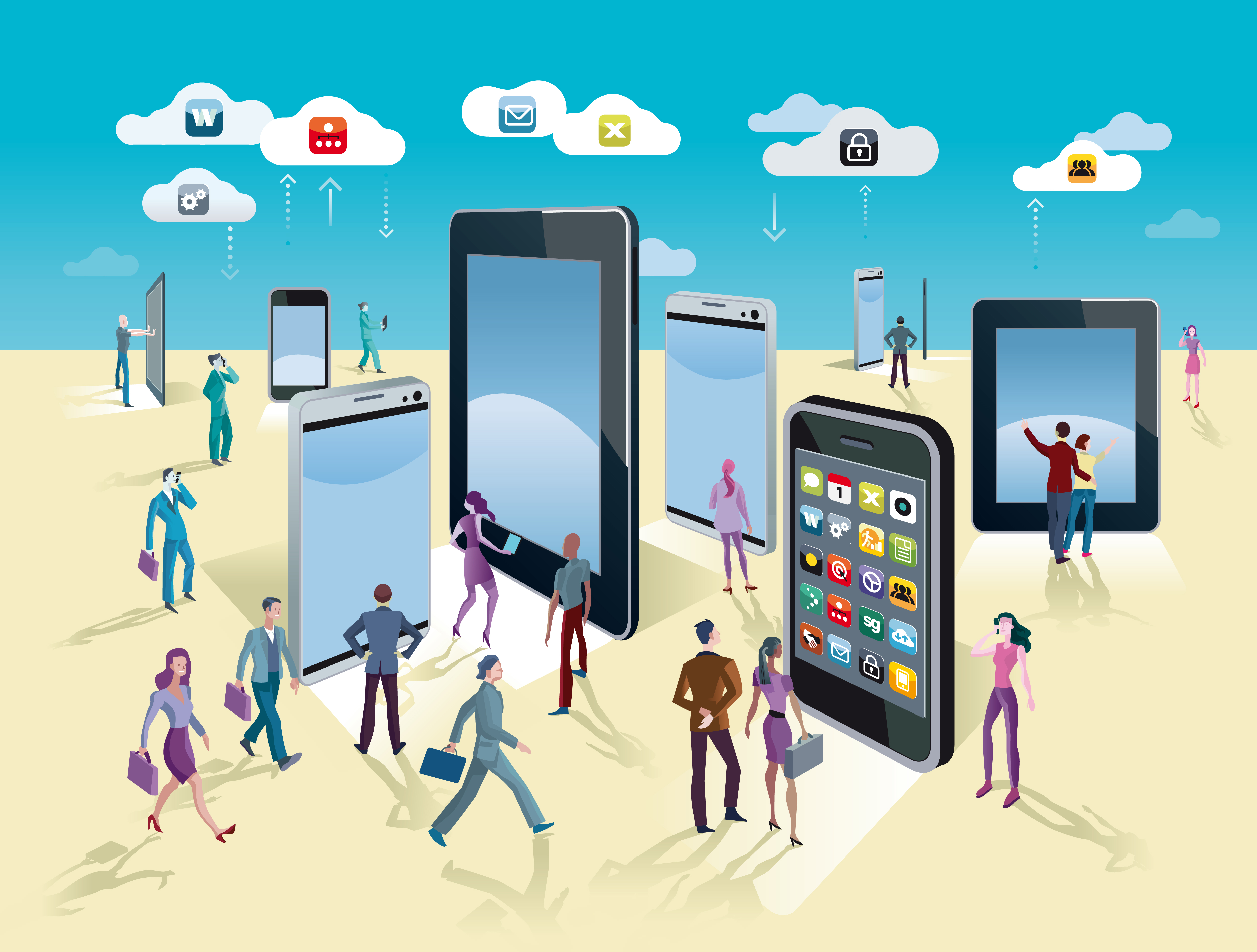3 digital small business sectors that are ready to take off
Part of our series on the future of Main Street


A free daily email with the biggest news stories of the day – and the best features from TheWeek.com
You are now subscribed
Your newsletter sign-up was successful
The definition of a small business is drastically different than it was even 10 years ago. Pioneers built apps that helped their businesses run smoother, and gave customers a better experience. But apps are no longer just a component of a smart business — for many entrepreneurs, apps are the business.
And now, once again, the landscape is shifting from apps that help us connect with one another to apps that help us run errands and shop for essentials. Apps are replacing brick-and-mortar businesses. Here are a few such digital small business sectors that are really ready to explode.
1. Grocery delivery services, particularly alcohol
The Week
Escape your echo chamber. Get the facts behind the news, plus analysis from multiple perspectives.

Sign up for The Week's Free Newsletters
From our morning news briefing to a weekly Good News Newsletter, get the best of The Week delivered directly to your inbox.
From our morning news briefing to a weekly Good News Newsletter, get the best of The Week delivered directly to your inbox.
Apps like Instacart and Google Express pick up groceries for you and deliver them to your door. This type of service is drawing investors' eyes and dollars. Delivery app Favor just received $13 million in Series A funding. And the same type of service is popping up across the world, like HappyFresh in Southeast Asia.
However, the next level in the evolution of grocery delivery is booze. Now, apps like Drizly, DrinkFly, Saucey, Thirstie, Klink, Minibar, etc. are flooding app stores. Customers use their smartphones to pay someone else to make the beer run and bring it to their doorstep.
These smaller delivery-focused businesses partner with large stores, serving not as a supplier, but almost as your personal errand boy. Everybody wins in that game: It's of minimal cost to the small delivery business (they only need to employ the delivery people and guarantee the service within a reasonable time frame at a reasonable price), it's a boon for the store providing the alcohol (they get a wider and happier customer base without spending more), and it's a service that connected customers use.
2. Subscription-based deliveries
A free daily email with the biggest news stories of the day – and the best features from TheWeek.com
Ramping up customer convenience even further, pop-up businesses have found a way to turn everyday items into subscription services. Customers pay a monthly fee to consistently receive a product of some sort, managed by a smartphone app or web component. It's like getting the newspaper, except it's an item you'd normally pick up at CVS.
Razors (Dollar Shave Club, Harry's, Bevel) and prepped food (Plated, Blue Apron, and Nature Box) seem to have this market cornered. The food delivery companies send subscribers snacks or all the ingredients needed for full meals (like IKEA, they provide all the pieces and you assemble).
There's also the clothing and beauty services like Trunk Club, Birchbox, and Rent the Runway. These services take the work out of style. Trunk Club offers personal online stylists, who send clothing options based on what members like, and charging only for clothes they keep. Rent the Runway similarly loans out high-fashion clothing at a discounted rate—you don't have to worry about spending a ton of cash for something you'll wear once. They also have a subscription-based service that functions like Netflix DVDs, but with clothes. Pay a monthly fee, get clothes from your queue, return when done. Birchbox sends a sampling every month of different personal products, from makeup to skincare to fragrances. Don't forget the dogs and their BarkBox. Every month, they send a box of doggie treats and toys based on the type of dog you have.
3. Virtual banking
The concept of a bank without a physical bank isn't new. It's called direct banking (like Ally Bank and Capital One 360). But things are changing even faster now.
Simple is a direct bank that lets you do all your banking in an app or on the desktop component. There are no brick-and-mortar locations. But the difference here is that Simple is only banking and general money management. Banks like Ally offer IRAs and CDs, auto financing, and tons of other services that might require some studying — or a finance guy to answer questions. The idea behind concepts like Simple is to make the things we have to do — like managing our money — uncomplicated.
Similarly, apps like Venmo are the next iteration of PayPal, where your bank account is linked to your online profile. Then you can send money to other users as easily as you would if you had handed them cash, usually free of charge.
Alma Bahman is Chicago-based writer and editor covering B2B and business. She's previously written for the Lawrence Journal-World and WBEZ.org.
-
 How did ‘wine moms’ become the face of anti-ICE protests?
How did ‘wine moms’ become the face of anti-ICE protests?Today’s Big Question Women lead the resistance to Trump’s deportations
-
 Currencies: Why Trump wants a weak dollar
Currencies: Why Trump wants a weak dollarFeature The dollar has fallen 12% since Trump took office
-
 Book reviews: ‘Hated by All the Right People: Tucker Carlson and the Unraveling of the Conservative Mind’ and ‘Football’
Book reviews: ‘Hated by All the Right People: Tucker Carlson and the Unraveling of the Conservative Mind’ and ‘Football’Feature A right-wing pundit’s transformations and a closer look at one of America’s favorite sports
